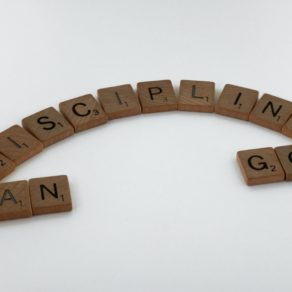Listening skills are a critical aspect of communication and are often the difference between a successful interaction and a failed one. Unfortunately, poor listening skills are all too common, but the good news is that they can be improved! Here’s a light-hearted article about how to improve your listening skills and why it’s important.
Types of Listening Skills
There are many different types of listening skills, but here are a few of the most important:
- Active listening: paying close attention to what the speaker is saying, both verbally and non-verbally.
- Reflective listening: reflecting back what the speaker has said to show that you have understood.
- Empathic listening: trying to understand the speaker’s feelings and experiences.
7 Key Active Listening Skills
Active listening is one of the most important types of listening skills. Here are 7 key active listening skills that you can work on:
- Pay attention to the speaker: focus on their words and body language.
- Show that you are listening: use nods, facial expressions, and other non-verbal cues to show that you are engaged.
- Avoid distractions: turn off your phone, close your computer, and avoid other distractions that could take your attention away from the speaker.
- Ask questions: if you’re not sure you understand what the speaker is saying, ask for clarification.
- Paraphrase: summarize what the speaker has said to make sure you understand.
- Provide feedback: let the speaker know what you think, and ask for their feedback in return.
- Practice empathy: try to understand the speaker’s feelings and experiences.
Poor Listening Skills
Poor listening skills can lead to misunderstandings, missed opportunities, and even conflicts. Some common examples of poor listening skills include:
- Interrupting: cutting off the speaker before they have finished.
- Talking over the speaker: drowning out the speaker with your own words.
- Daydreaming: letting your mind wander instead of focusing on what the speaker is saying.
- Prejudging: making assumptions about the speaker based on their appearance, tone, or past experiences.
Listening Skills Activities
There are many different activities that you can do to improve your listening skills. Here are a few ideas:
- Practice active listening: find someone to talk to and focus on their words and non-verbal cues.
- Listen to podcasts or audio books: paying close attention to what is being said.
- Attend workshops or training sessions: learn from experts in the field of listening skills.
- Watch videos: watch videos on active listening or other types of listening skills.
- Join a discussion group: participate in discussions with others and focus on what they are saying.
Importance of Listening Skills
Listening skills are important for a variety of reasons. Here are just a few:
- Improved communication: better listening skills can lead to improved communication and fewer misunderstandings.
- Better relationships: good listening skills can help you build stronger relationships with others.
- Increased confidence: when you feel like you are being heard and understood, your confidence will grow.
- Better decision-making: by truly understanding what others are saying, you can make better decisions.
Listening and Speaking Skills
Listening and speaking skills are two sides of the same coin. Good listening skills will help you improve your speaking skills, and vice versa. Here are a few tips for improving both listening and speaking skills: Pay attention to the person speaking, show that you are engaged by making eye contact and nodding, avoid interruptions, ask clarifying questions, summarize what the person has said to show that you have understood, and practice active listening by putting yourself in the speaker’s shoes and considering their perspective. Additionally, practicing good communication skills in everyday life will help you build confidence in your ability to communicate effectively, whether it’s in a professional or personal setting. Remember, the more you practice, the better you will become at both listening and speaking. So, take every opportunity to engage in conversations, ask questions, and really listen to what others have to say.
Now that you understand the importance of listening skills, let’s dive into how to improve them. Improving listening skills can make a big difference in personal and professional relationships, as well as in your overall communication skills. Here are some tips and activities to help you improve your listening skills:
- Practice active listening – This means paying full attention to the speaker, making eye contact, and avoiding distractions like checking your phone or multitasking.
- Ask questions – Asking thoughtful questions shows the speaker that you are actively engaged in the conversation and can also help you better understand what they are saying.
- Avoid interruptions – Let the speaker finish their thought before responding. This shows respect for their perspective and can also prevent misunderstandings.
- Pay attention to nonverbal cues – Body language and tone of voice can often convey more than just the words being spoken.
- Avoid assumptions – Try not to jump to conclusions before fully hearing the speaker’s point of view.
- Reflect on what you heard – After a conversation, take a moment to think about what you learned and how you can apply it.
- Try listening skills activities – There are many activities you can try to help improve your listening skills, such as practicing active listening exercises or playing games that require you to listen closely.
In conclusion, the importance of listening skills cannot be overstated. Whether you are a student, in a professional setting, or in personal relationships, having good listening skills can make a big impact on the quality of your interactions and the effectiveness of your communication. So why not start putting these tips into practice today and see the positive difference it can make!






Leave a Comment